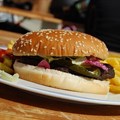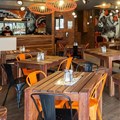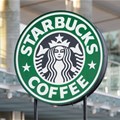Now, Famous Brands, which has big ambitions with GBK, is trumpeting that it has all but transformed its business, which for almost two decades has been built on power brands such as Steers, Debonairs Pizza, Wimpy and Mugg & Bean.
What definitely has transformed is Famous Brands' balance sheet, which has swung from being virtually ungeared to sporting a net debt-to-equity ratio of 165% at the end of its financial year to February. It sent interest charges ballooning from R17.3m in the first half of the year to R184m in the full year, and together with costs of R106m incurred in the acquisition of GBK, headline EPS (HEPS) down 21%. If the extra costs could be wished away, HEPS would have risen 13%.
In the past year shareholders also waved goodbye to dividends. "We hope to restore dividend payments in 2018," says Darren Hele, Famous Brands CE since taking over the helm from Kevin Hedderwick in March 2016.
GBK is the 28th brand in its line-up. It brought with it 97 restaurants, six of which are in Ireland. "We aim to open about 10 new restaurants a year," says Hele.
Each restaurant comes with a price tag of 1m and, in a major shift away from Famous Brands' franchise model, all will be corporate owned.
Famous Brands is no stranger to the UK market, which it entered in 2007 through the acquisition of Wimpy UK. Hardly a roaring success, Wimpy UK's operating profit in the year to February was a mere R19m.
Famous Brands is looking for far bigger things from GBK, which it targets to generate 45% of group profit within four to five years. It is feasible but a big ask. In its first 20 weeks in the Famous Brands fold, GBK contributed operating profit of R36m. Annualised, it amounted to R94m, 10% of total group operating profit of R938m in the year to February.
In GBK's defence, Hele says: "GBK opened eight restaurants in the 20 weeks. Opening expenses are very high."
Vunani Securities analyst Anthony Clark believes market caution towards Famous Brands won't disappear. "With its high debt level and paying no dividend the market will adopt a wait-and-see approach for a year or two," says Clark.
For investors the choice in the sector is primarily between Famous Brands and Spur Corp. Analysts have mixed views.
"I would still go with Famous Brands," says Alec Abraham of Sasfin Securities.
"I don't want to be in either," says Evan Walker of 36ONE Asset Management. "But if I had to choose, I would take Famous Brands."
For his money, Clark is backing Spur as his top sector choice. "I have had a buy recommendation on Spur for two years," he says.
Looked at simplistically, says Clark, Famous Brands will have around 3,000 restaurants by year-end and Spur around 600. "It will be far easier for Spur to go to 1,200 than for Famous Brands to go to 6,000."
Though Spur is sticking to its franchise-only business model, it has in recent years adopted a more dynamic approach to expansion through its nine brands. Additions to its core brand line-up of Spur Steak Ranches, Panarottis Pizza Pasta and John Dory's include premium burger brand RocoMamas and The Hussar Grill.
Of RocoMamas, Spur CE Pierre van Tonder says: "It is a gem of a business and incredibly innovative. We have just taken our stake in RocoMamas from 54% to 70%."
Van Tonder's enthusiasm is well founded. In the six months to December, RocoMamas' operating profit from franchise fees jumped 62% year-on-year to R8.2m while like-for-like restaurant turnover was up 45%. With only 49 restaurants in SA and one each in Namibia, Saudi Arabia and Oman, RocoMamas is also a brand with serious scope for expansion. "We are seeing huge customer and franchisee interest," says Van Tonder.
The Hussar Grill is coming off a low base of 15 restaurants and has, says Van Tonder, the potential to reach about 35 in SA. But it could have far longer legs. "There is a lot of interest in the brand from hotel groups operating in the Middle East and Africa," he says.
Marc Hasenfuss 27 Feb 2017 The restaurant sector also has something for the hardened speculator: Taste Holdings, whose share price has lost two-thirds of its value since mid-2015.
Taste founder and CE Carlo Gonzaga thinks big. He proved it in May 2014 when he secured a master franchise agreement with US fast-food giant Domino's Pizza. Going even bigger, he brought Starbucks, the world's largest coffee shop group, on board in July 2015.
"Gonzaga took on too much at one time," says Clark. "Taste has burnt through the R680m it raised to fund its Domino's and Starbucks ventures and has fallen far short of earlier market expectations."
So far short that in its year to February Taste dished up to shareholders a loss of R100.8m, up from a R75.8m loss the previous year. The latest loss would have been far higher if not for its luxury goods division's R52.5m operating profit. Losses have taken Taste close to the brink. "They have run out of cash," says Clark.
Providing short-term relief, Taste is in the process of raising R120m through a fully underwritten rights issue. "They can last about 18 months with the R120m," says Clark.
Taste is hoping to shore up the group further with the planned sale of its luxury goods division. It will be doing so at a time when trading conditions are grim. "Taste will be seen as a distressed seller and will probably get only about R300m for the division," says Clark.
Gonzaga is ever the optimist. "We will open eight to 10 Starbucks [there are four now] this year and will soon break even at the Ebitda [earnings before interest, tax, depreciation and amortisation] level," he says.
Domino's is "trading well", with strong same-store sales growth, and will be at breakeven Ebitda at 120 outlets, says Gonzaga. There are expected to be 105 outlets by the end of this year. If Gonzaga can pull off his bold vision, Taste could deliver big returns perhaps two years down the line.
But for now, investors wanting exposure to the sector should stick with Famous Brands or Spur, though even here caution is called for. Ominously, Van Tonder says: "Since March the restaurant industry has had a very sharp turndown in activity across the board."
Source: Financial Mail























































